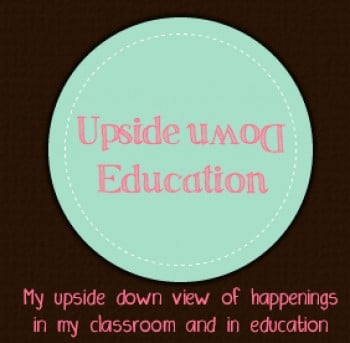I am a big believer in encouraging and teaching problem solving skills in a classroom. I’m not talking about math problem solving, I’m talking about basic everyday problem solving. I’m sure most forward-thinking educators can agree with this. My kids complain because I give them scenarios that have happened in history or “what if”s in science and there is no right or wrong answer. They just want to know if their idea is correct is correct so they can move on. They do not understand that just knowing facts and not using these facts to solve problems is not good enough.
Last week Aaron Eyler wrote a blog post about asking if you read directions. It made me start thinking about why people do not read them, because it is human nature to figure things out. Most humans automatically go into the “figure it out” mode. If we train students to be “expert” problem solvers, if we give them chances to exercise trial and error, will some of the issues we deal with today be different? The past week problem solving in the “real world” has been on my mind. Let me explain.
You know everyone has something they just cannot learn enough about. Well mine, I have to admit, is the ocean ecosystem. I do not talk about it much, because my whole life I’ve heard the groans of my friends and family when I get on my “Save the Oceans” soapbox. In college I even took “Island Ecology” on the VERY uninhabited Andros Island in the Bahamas. It was heaven. Snorkeling, island exploring, etc, FOR A GRADE! I take my kids to the aquarium anytime I have a few extra bucks or a free weekend. There is not many sea life I have not encountered: sea turtles in the Virgin Islands, sting rays in the Gulf of Mexico, dolphins in the back bays of south Alabama, even flying fish, eels, and sharks (he was an accident) while in the Bahamas. I’ve seen (not touched) every type of coral and explored ship wrecks. Smuggled sea biscuits back into the US. I’ve held wild starfish, sea cucumbers, even picked up a conch shell not knowing it was occupied until literally nose to nose with the slimy sucker. I wear pearls instead of diamonds because they remind me of the sea. The odd part of this obsession, I’ve never eaten seafood – ever! I always say if I lose everything I’m moving to the Sea Lab and work. So do you see my obsession?! It’s bad!
For Mother’s Day this year I asked to take my kids to see the movie “Disney’s Oceans.” The movie was wonderful. I’ve seen every IMAX ocean movie and this one ranks up their with them. But this time it was different. I spent the entire movie bawling. Sobbing. On April 20, the ocean I know and love was devastatingly harmed. I grew up going to Gulf Shores, Alabama at least once a month. My parents own a house there, and this is my “first” home. I cannot express my love for this place. An oil rig in the gulf is now leaking gallons upon gallons oil, which as of last night, has started washing up on the shore. These animals and ecosystem are now suffering because of human error.
Error is OK, if you learn from it, and fix it. You cannot just leave error at error. BP has no solution for this horrific spill. They are choosing “too late” to be the time to problem solve. We need to teach students to look at situations before there is a problem and have ideas on how to prevent and what to do when problems occur. My students know that every situation I give them will not happen, but let’s pretend it does. Let us look at worse possible scenarios. We have to train our thinkers (students) to be able to see problems BEFORE they happen. There should have already been a “cap” developed and experimented with, not trying out one for the first time this week (which failed by the way).
We need to teach students to have “back up plans” or “plan B, C, D, E, F and G” before doing something. They cannot just look at something as “here are the facts, it will always work and there will be no problems.” They need to think more critically, as in “Lets try this, if it does not work, try this.” The world is not just a series of facts. It is a series of situations. Situations that are in need of more and more ideas.
Where are these problem solvers? Let’s get them thinking and solving now, so my children will not suffer the heart break the Gulf is suffering now.
a
